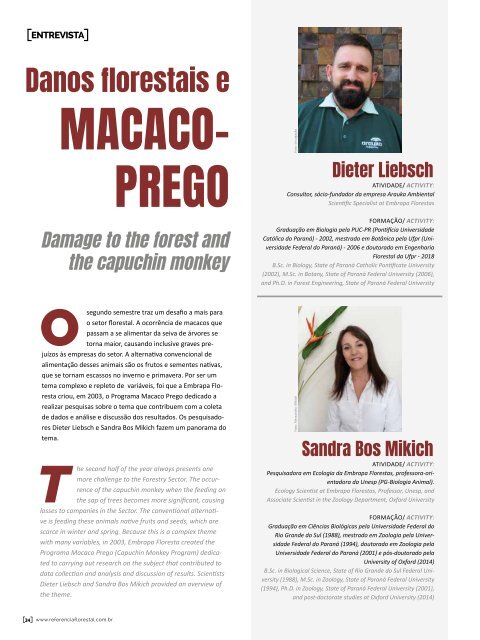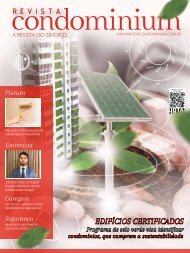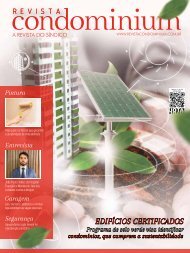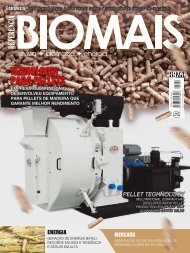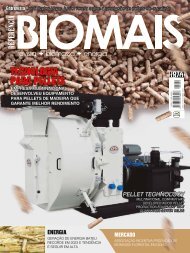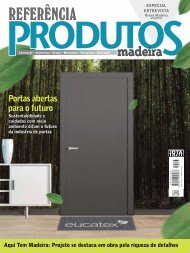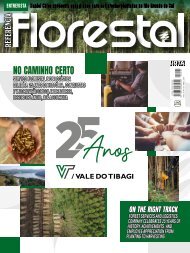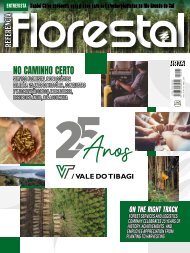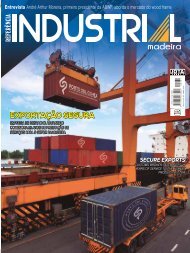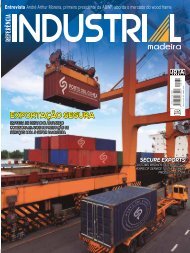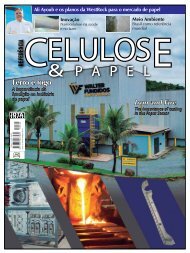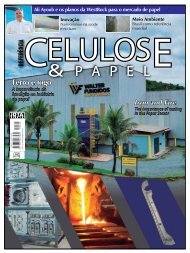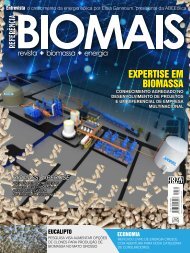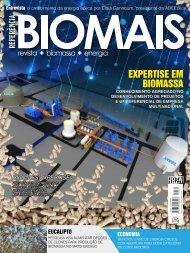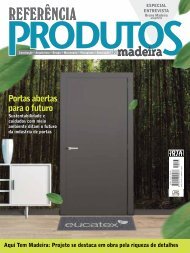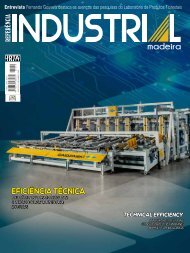You also want an ePaper? Increase the reach of your titles
YUMPU automatically turns print PDFs into web optimized ePapers that Google loves.
ENTREVISTA<br />
Danos florestais e<br />
MACACO-<br />
PREGO<br />
Damage to the forest and<br />
the capuchin monkey<br />
O<br />
segundo semestre traz um desafio a mais para<br />
o setor florestal. A ocorrência de macacos que<br />
passam a se alimentar da seiva de árvores se<br />
torna maior, causando inclusive graves prejuízos<br />
às empresas do setor. A alternativa convencional de<br />
alimentação desses animais são os frutos e sementes nativas,<br />
que se tornam escassos no inverno e primavera. Por ser um<br />
tema complexo e repleto de variáveis, foi que a Embrapa Floresta<br />
criou, em 2003, o Programa Macaco Prego dedicado a<br />
realizar pesquisas sobre o tema que contribuem com a coleta<br />
de dados e análise e discussão dos resultados. Os pesquisadores<br />
Dieter Liebsch e Sandra Bos Mikich fazem um panorama do<br />
tema.<br />
T<br />
he second half of the year always presents one<br />
more challenge to the Forestry Sector. The occurrence<br />
of the capuchin monkey when the feeding on<br />
the sap of trees becomes more significant, causing<br />
losses to companies in the Sector. The conventional alternative<br />
is feeding these animals native fruits and seeds, which are<br />
scarce in winter and spring. Because this is a complex theme<br />
with many variables, in 2003, Embrapa Floresta created the<br />
Programa Macaco Prego (Capuchin Monkey Program) dedicated<br />
to carrying out research on the subject that contributed to<br />
data collection and analysis and discussion of results. Scientists<br />
Dieter Liebsch and Sandra Bos Mikich provided an overview of<br />
the theme.<br />
Foto: divulgação<br />
Dieter Liebsch<br />
ATIVIDADE/ ACTIVITY:<br />
Consultor, sócio-fundador da empresa Arauka Ambiental<br />
Scientific Specialist at Embrapa Florestas<br />
FORMAÇÃO/ ACTIVITY:<br />
Graduação em Biologia pela PUC-PR (Pontifícia Universidade<br />
Católica do Paraná) - 2002, mestrado em Botânica pela Ufpr (Universidade<br />
Federal do Paraná) - 2006 e doutorado em Engenharia<br />
<strong>Florestal</strong> da Ufpr - 2018<br />
B.Sc. in Biology, State of Paraná Catholic Pontificate University<br />
(2002), M.Sc. in Botany, State of Paraná Federal University (2006),<br />
and Ph.D. in Forest Engineering, State of Paraná Federal University<br />
Foto: Alessandra Mikich<br />
Sandra Bos Mikich<br />
ATIVIDADE/ ACTIVITY:<br />
Pesquisadora em Ecologia da Embrapa Florestas, professora-orientadora<br />
da Unesp (PG-Biologia Animal).<br />
Ecology Scientist at Embrapa Florestas, Professor, Unesp, and<br />
Associate Scientist in the Zoology Department, Oxford University<br />
FORMAÇÃO/ ACTIVITY:<br />
Graduação em Ciências Biológicas pela Universidade Federal do<br />
Rio Grande do Sul (1988), mestrado em Zoologia pela Universidade<br />
Federal do Paraná (1994), doutorado em Zoologia pela<br />
Universidade Federal do Paraná (2001) e pós-doutorado pela<br />
University of Oxford (2014)<br />
B.Sc. in Biological Science, State of Rio Grande do Sul Federal University<br />
(1988), M.Sc. in Zoology, State of Paraná Federal University<br />
(1994), Ph.D. in Zoology, State of Paraná Federal University (2001),<br />
and post-doctorate studies at Oxford University (2014)<br />
34 www.referenciaflorestal.com.br


